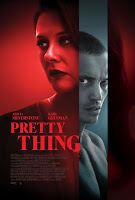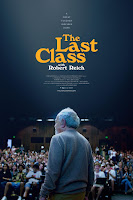the traveler's resource guide to festivals & films
a FestivalTravelNetwork.com site
part of Insider Media llc.
Reviews
July '25 Digital Week II
- Details
- Parent Category: Film and the Arts
- Category: Reviews
- Published on Thursday, 10 July 2025 22:14
- Written by Kevin Filipski
Broadway Play Review—“Call Me Izzy” with Jean Smart
- Details
- Parent Category: Film and the Arts
- Category: Reviews
- Published on Monday, 07 July 2025 18:03
- Written by Kevin Filipski
_55.jpg) |
| Jean Smart in Call Me Izzy (photo: Marc J. Franklin) |
July '25 Digital Week I
- Details
- Parent Category: Film and the Arts
- Category: Reviews
- Published on Thursday, 03 July 2025 02:45
- Written by Kevin Filipski
Antrópolis & More With the MET Orchestra at Carnegie Hall
- Details
- Parent Category: Film and the Arts
- Category: Reviews
- Published on Tuesday, 24 June 2025 13:53
- Written by Jack Angstreich

Soprano Angel Blue with the MET Orchestra. Photo by Jennifer Taylor.
At the wonderful Stern Auditorium, on the night of Wednesday, June 18th, I had the exceptional privilege to attend a superb concert—the second of two in the space of six days—presented by Carnegie Hall, that featured the marvelous MET Orchestra under the masterly direction of its irrepressible Conductor, Yannick Nézet-Séguin. (This season has proven to be a noteworthy one.)
The event started thrillingly with a sterling account of Gabriela Ortiz’s ebullient, energetic, brilliantly orchestrated Antrópolis, of which the 2019 revision was played. (The music strongly recalls Leonard Bernstein’s scores of popular music.) In a useful note on the program by Harry Haskell, he records the following, citing the composer’s own words:
Describing her music as “brilliant and rather light-hulled,” Ortiz explains that “the word ‘antro’ has its origin in the Latin ‘antrum,’ meaning ‘grotto’ or ‘cavern.’” In Antrópolis, she “wanted to pay a very personal tribute to some of those ‘antros’ or emblematic dance halls of Mexico City that left a special sonorous imprint in my memory. These cabarets or dance halls that represent the nostalgia for rumberas and live dance orchestras, such as El Bombay, where it is said that Che Guevara would twirl; or the Salón Colonia, which seems to have come out of dreams taken from a film of the Golden Age of Mexican cinema. Who doesn’t remember the fun ballroom Los Infiernos, a perfect place for those who after a long day at work would leave their cubicles to go dancing, drink, and listen to music? Finally, the memory of the bar Tutti Frutti leaves an impression, where I first met the punk couple who own the antro and where you could listen to experimental music from the 1980s.”
The outstanding soprano, Angel Blue—who wore a fabulous, bright yellow gown—then entered the stage for a powerful rendition of Bernstein’s seldom performed Symphony No. 1, “Jeremiah,” completed in 1942. The annotator quotes the composer on this work:
His intention, he wrote, was to convey the “emotional quality” of the biblical admonition rather than its literal meaning: “Thus, the first movement (‘Prophecy’) aims only to parallel in feeling the intensity of the prophet’s pleas with his people; and the Scherzo (‘Profanation’) to give a general sense of the destruction and chaos brought on by the pagan corruption within the priesthood and the people. The third movement (‘Lamentation’), being a setting of poetic text, is naturally a more literary conception. It is the cry of Jeremiah, as he mourns his beloved Jerusalem, ruined, pillaged, and dishonored after his desperate efforts to save it.”
The initial movement is solemn, even grave, while the second has a driving rhythm and playful elements. The finale is serious too, even urgent at times.
Even more remarkable, however, was the second half of the evening, beginning with an exemplary realization—and indeed the New York premiere—of Terence Blanchard’s terrific Suite—which was arranged in 2024 and is also notable for its impressive scoring–from his 2019 opera, Fire Shut Up in My Bones. The concert’s pinnacle, however, may have been its closing selection: Antonín Dvořák’s astonishing Symphony No. 9 in E Minor, Op. 95, “From the New World,” finished in 1893, and heard here in an entrancing iteration. Haskell references the composer informatively here:
In an interview published to coincide with the New York Philharmonic’s premiere of the Symphony No. 9 at Carnegie Hall in December 1893, he made it clear that although he had “carefully studied a certain number of Indian melodies which a friend gave me,” he had not actually incorporated any of them in his new work. “I have simply written original themes embodying the peculiarities of the Indian music, and, using these themes as subjects, have developed them with all the resources of modern rhythms, harmony, counterpoint and orchestral color.”
He adds:
According to the composer, the Largo, with its haunting English horn melody (which one of his pupils later turned into the spiritual-like song “Goin’ Home”), was a preliminary study for an unrealized opera or cantata based on Henry Wadsworth Longfellow’s Song of Hiawatha, while the scherzo-like third movement depicted the wedding dance performed by the poet’s mischievous Pau-Puk-Keewis, “[w]hirling, spinning round in circles, / leaping o’er the guests assembled, / Eddying round and round the wigwam ...”
Lastly, Dvořák asserted that the symphony was “an endeavor to portray characteristics, such as are distinctly American.”
In the first, Allegro molto movement, after a brief, quiet, Adagio introductory passage, the music rapidly becomes portentous but contrasting material is stirring and affirmative; it ends abruptly, if forcefully. The ensuing Largo has a somber beginning, preceding the hauntingly beautiful, lyrical theme mentioned above; subsequent passages with new melodies are also charming and memorable. The movement acquires a pastoral quality and concludes softly. The third movement, marked Molto vivace, is propulsive and dynamic, with gentle, pretty, leisurely interludes, and the Allegro con fuoco finale is exuberant and grand, but with song-like episodes.
Deservedly, the artists were very enthusiastically applauded.
More Articles...
Newsletter Sign Up






















